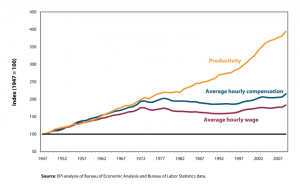David Dayen: Regulatory Apparatus To Provide Full Employment For Chroniclers of Future Bailouts, as Useless Mortgage Origination Rules Introduced
There’s no way to possibly count the various ways in which Dodd-Frank rules have been watered down, even from their already waterlogged original intent. But we got another example of it yesterday, the product of a corrupt bargain between the mortgage industry and so-called “progressive” housing groups.
Read more...



